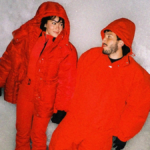Linkin Park’s lawyers are citing statute of limitations in their request to dismiss the former bassist’s complaint for unpaid royalties.
Five months after one of Linkin Park’s former bassists sued the band for unpaid royalties related to the reissue of Hybrid Theorythe class’ attorneys filed a motion to dismiss the lawsuit.
In the motion filed Tuesday, Linkin Park’s legal team cited a number of ” defaults ” in Kyle Christner’s complaint, including the fact that the statute of limitations was ” long outdated », reports Billboard.
Christner was Linkin Park’s bassist for less than a year in 1999, and although he didn’t appear on the album Hybrid Theory 2000’s 12x platinum release, some of his contributions from the era appear on the album’s 20th anniversary reissue, particularly three demos and the EP Hybrid Theory of six songs.
However, when Christner reviewed all the archival materials in the box set, he concluded that his work appeared on ” more than twenty songs ”, according to the terms of the complaint. Mr. Christner said he reported his findings to the management company, Machine Shop Entertainment, but the manager who initially contacted him “ disappeared » after acknowledging receipt of his letter.
“ The plaintiff claims the defendants owe him money because he was a member of the group for no more than eight months, 25 years ago, and was not paid for his “contributions.”Linkin Park attorney Edwin F. McPherson wrote in the motion to dismiss. He asserts three claims, each of which is rejected. »
Linkin Park member Mike Shinoda (who praised Christner’s work on the track ” Could Have Been » reissue during a livestream in 2020); Rob Bourdon, Brad Delson and Joseph Hahn are named as defendants alongside Machine Shop and Warner Records.
According to Linkin Park’s lawyers, Christner had three years to file a complaint about his work on Hybrid Theory. This deadline has long passed with regard to the 2000 album. However, if we only take into account the Christner tracks discovered on the reissue, the 20th anniversary edition of Hybrid Theory was released in October 2020, while Christner’s complaint was filed in November 2023, making the three-year deadline exceeded by one month, as the motion to dismiss points out.






![MORAD nuovi concerti a Roma e Olbia [Info e Biglietti]](https://www.wecb.fm/wp-content/uploads/2025/03/1741135029_Morad-new-concerts-in-Rome-and-Olbia-info-and-tickets.webp-150x150.webp)